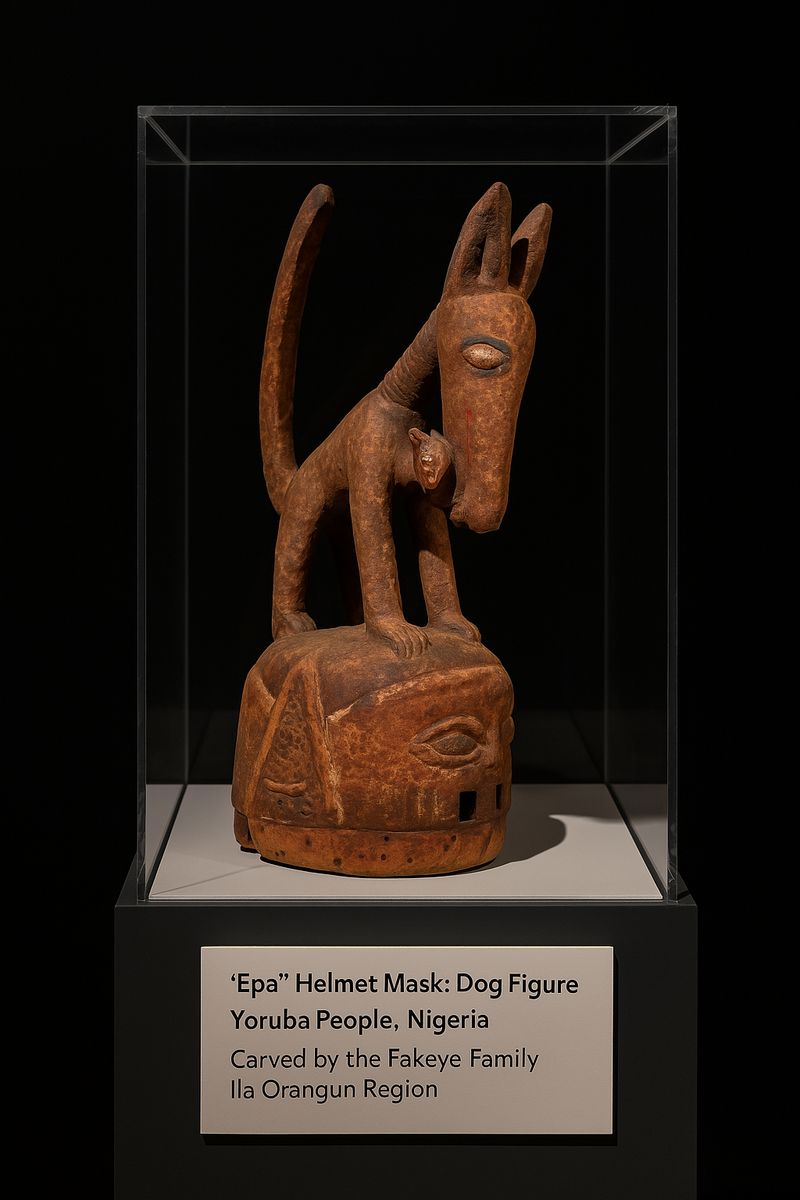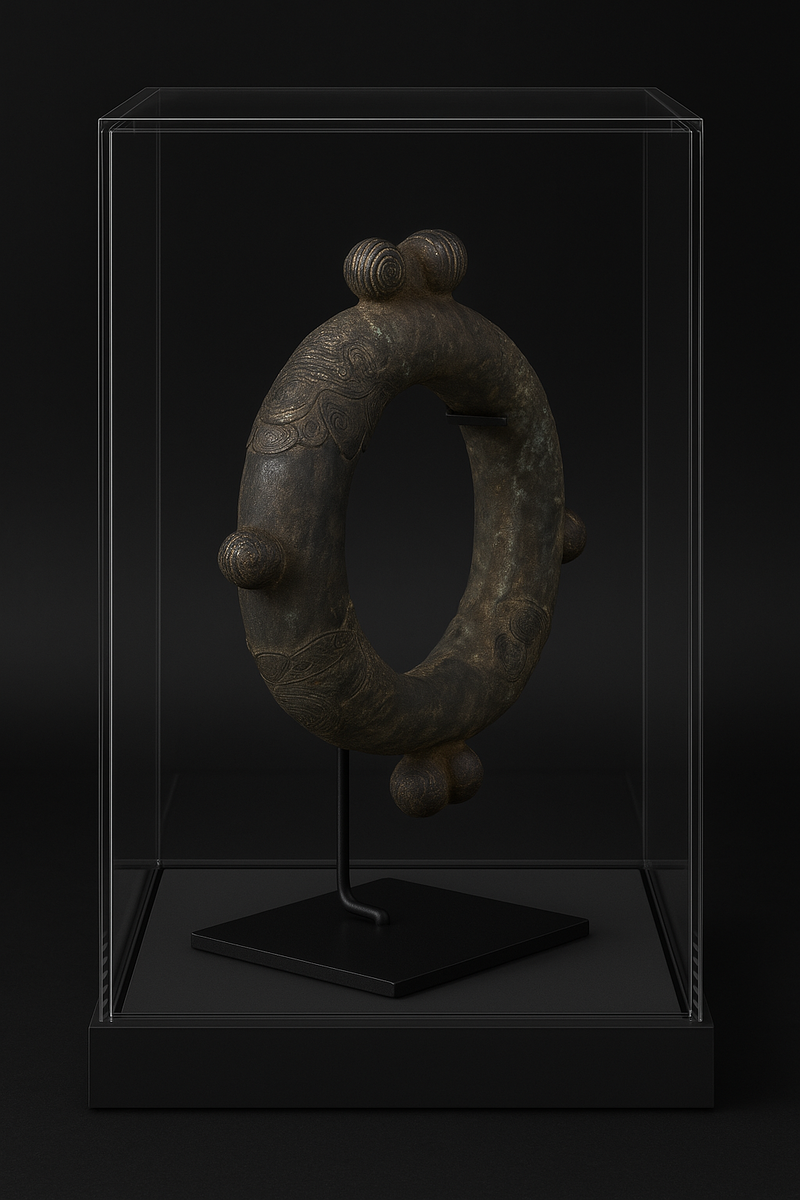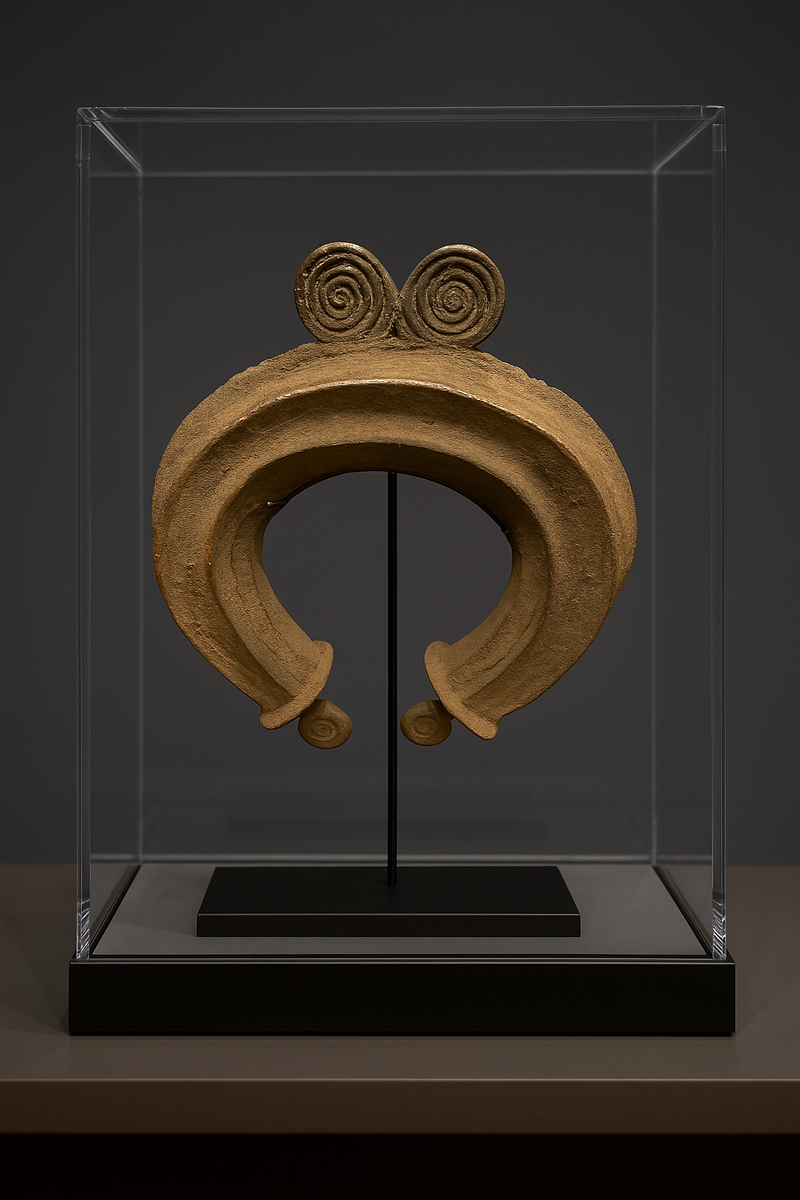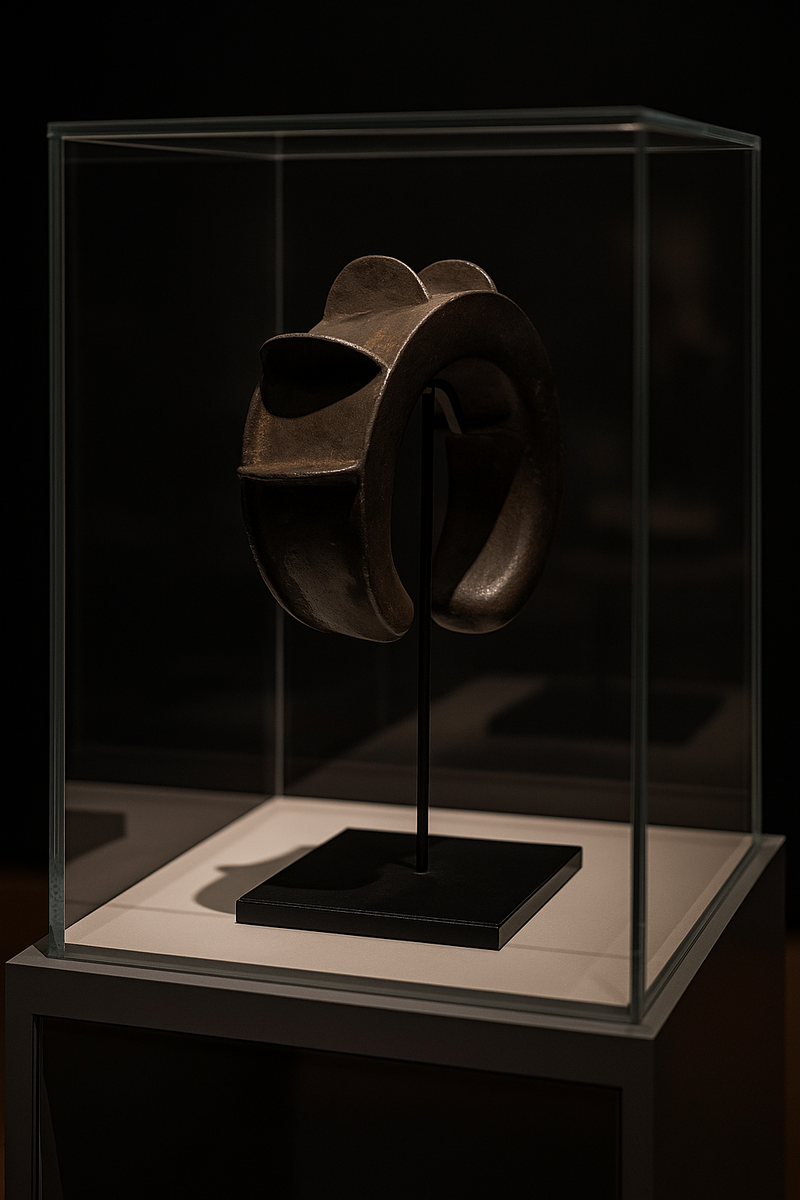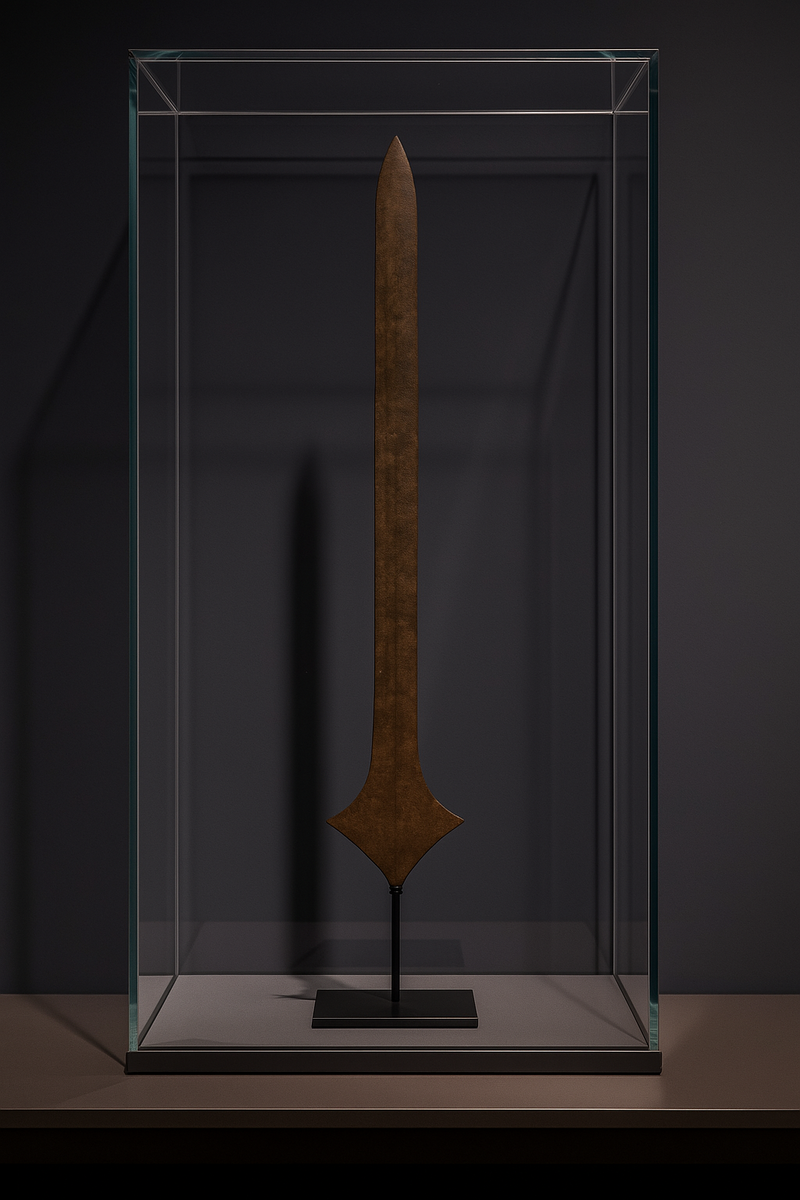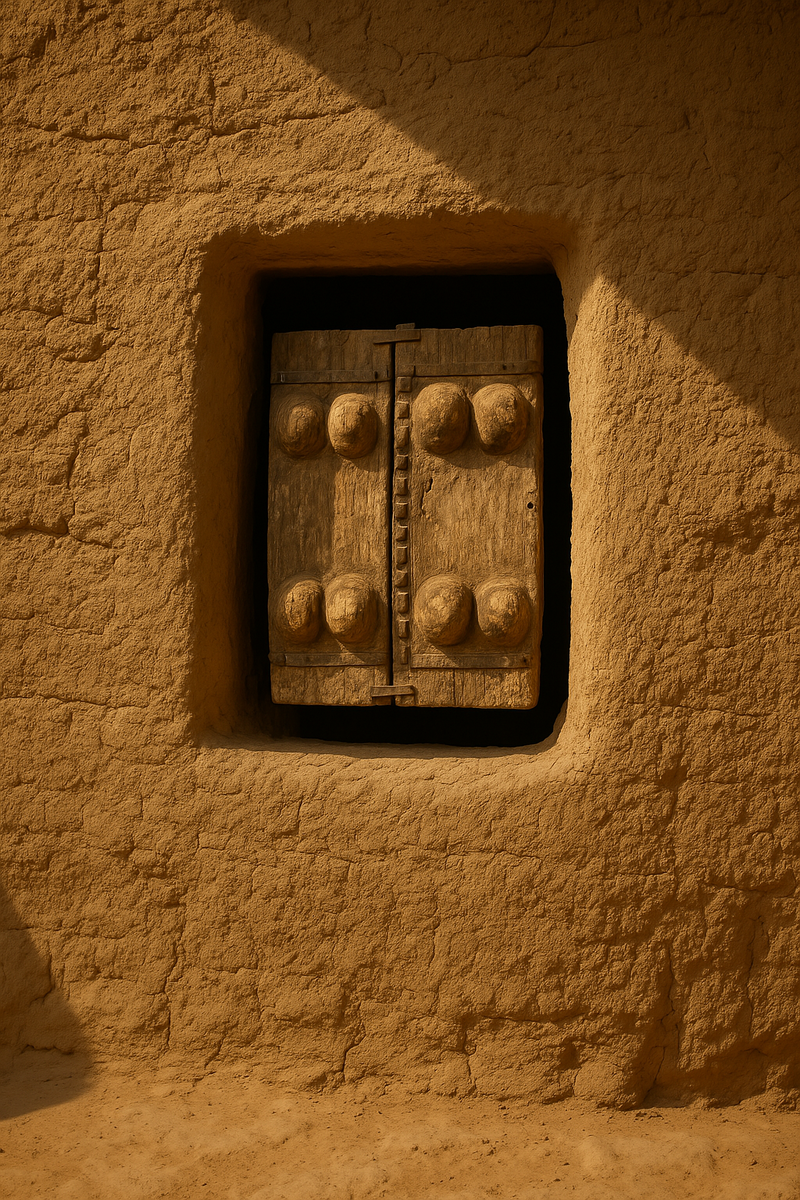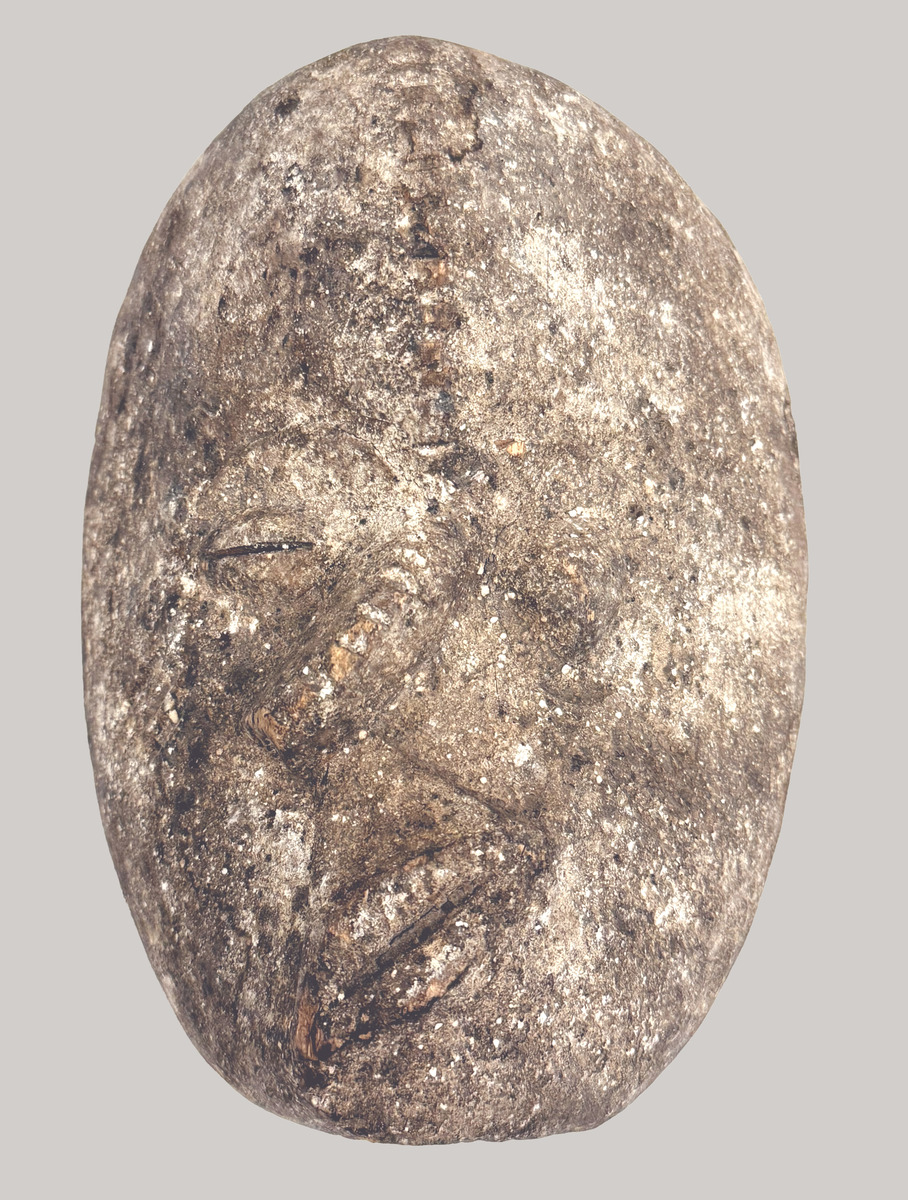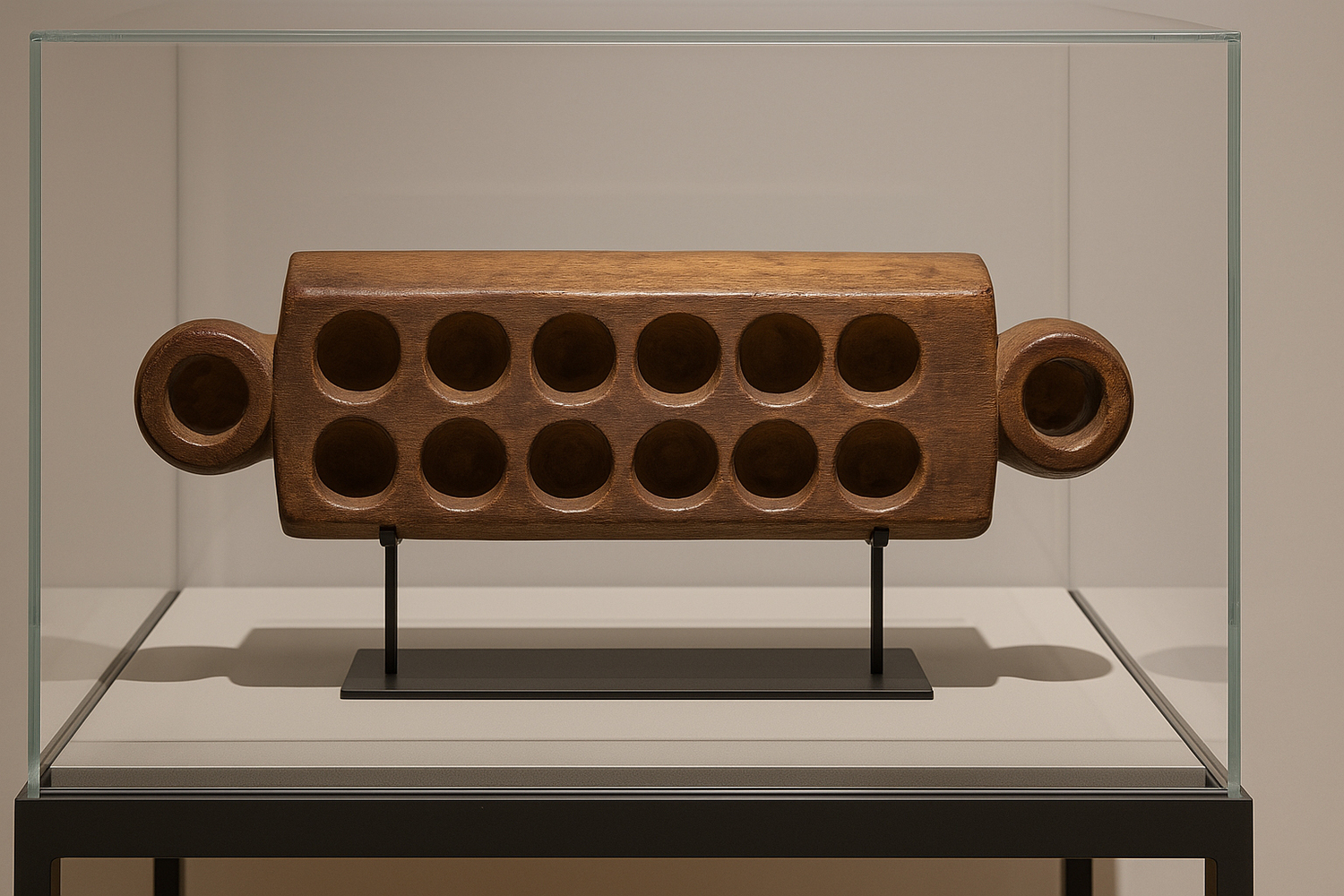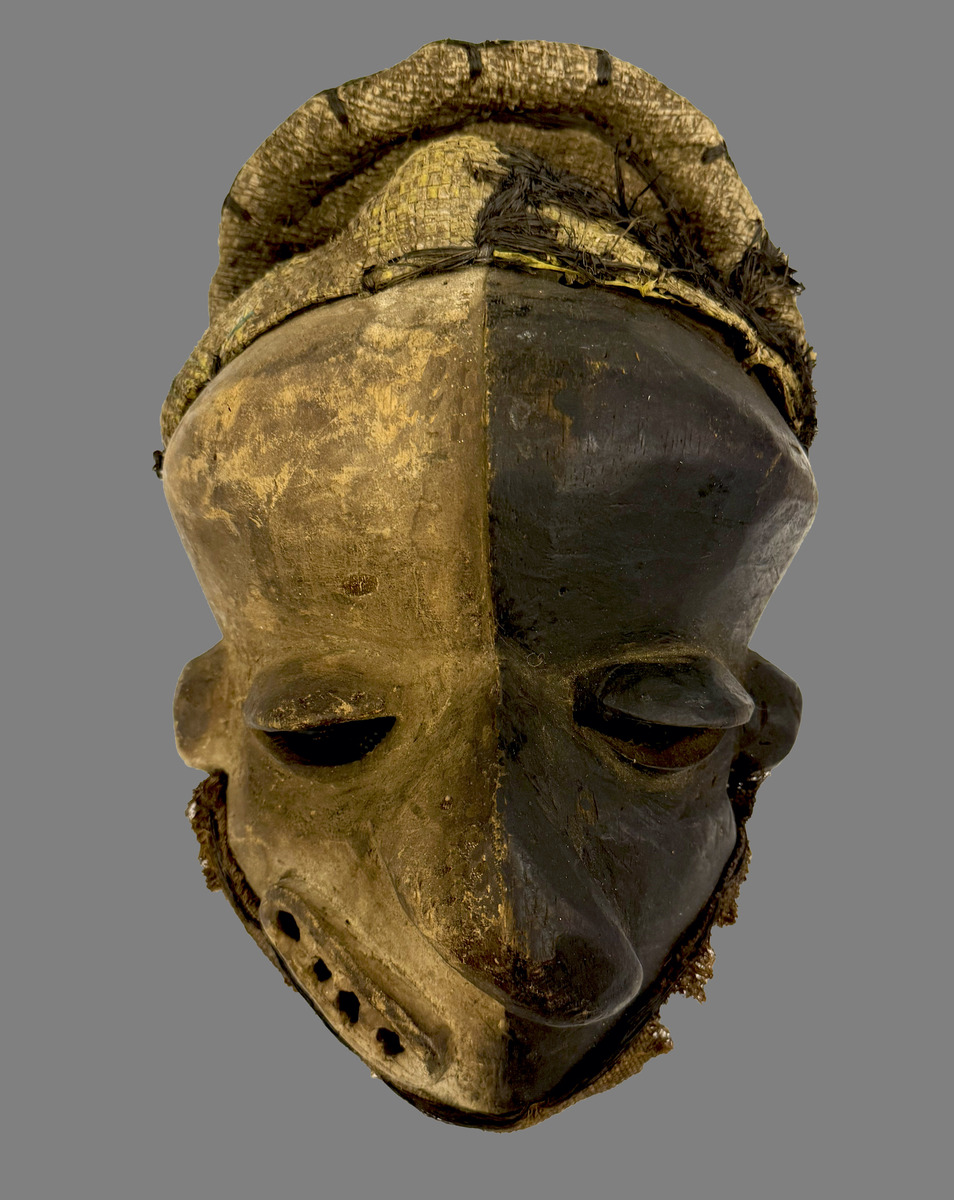Description
This haunting and powerfully sculpted deformation mask from the Pende of the Kwilu-Kwango region embodies a deeply philosophical artistic tradition rooted in performance, morality, and community ritual. Known among the Pende as Mbuya ya Kipuka—literally “mask of sickness” or “deformation”—this type of mask transcends the notion of portraiture or caricature. Instead, it represents a moral, metaphysical, and social commentary embedded within the powerful medium of masquerade.
Carved from dense wood and darkened by age, ritual use, and organic pigment, the mask exhibits extreme facial stylization: the eyes are reduced to small pierced openings, the nose is enlarged and flattened, and the cheeks are bulbous and asymmetrical. A deep groove runs down the center, subtly dividing the face and emphasizing the imbalance or affliction being conveyed. This distortion is intentional—it reflects not an individual likeness, but rather a metaphor for physical and societal ailment.
The headdress is composed of aged bark cloth, heavily worn and frayed, affixed with natural fiber binding. It would have once flowed over the wearer’s shoulders and torso as part of a complete costume, ensuring full bodily transformation during public performances.
This type of Mbuya mask is neither decorative nor trivial. Among the Pende, masks are central to societal order and spiritual regulation. The Mbuya ya Kipuka is typically performed during the mukanda (male initiation rituals), funerary rites for respected elders, or public festivities that involve moral instruction. The exaggerated features are used to dramatize deviance, illness, or social dysfunction, often with elements of satire and exaggerated dance.
The mask operates as a kind of “living sculpture”—one that moves, speaks through gesture, and channels ancestral or supernatural forces. The performer, hidden within raffia and bark costume, does not act as himself but as the mask’s character—a being who critiques human behavior, warns against transgression, and sometimes elicits laughter or discomfort. It is a form of social therapy and pedagogy, uniquely African in its ability to blend performance and sculpture into a coherent philosophical whole.
The Pende do not view these masks as static objects; they are activated by performance, through which their power and meaning are fully realized. This particular example likely referenced illness or deformity as a consequence of taboo or misbehavior—common themes in Pende moral storytelling.
This mask belongs to a highly sought-after class of African art that marries aesthetic restraint with profound conceptual weight. Similar examples are found in the collections of the Musée Royal de l’Afrique Centrale (Tervuren), The Brooklyn Museum, and The Fowler Museum at UCLA.
Its raw surface, bold form, and intact organic adornment give this mask remarkable presence. As an artifact of cultural performance, it holds significance far beyond its material—offering a direct lens into the moral and ancestral philosophy of the Pende.


